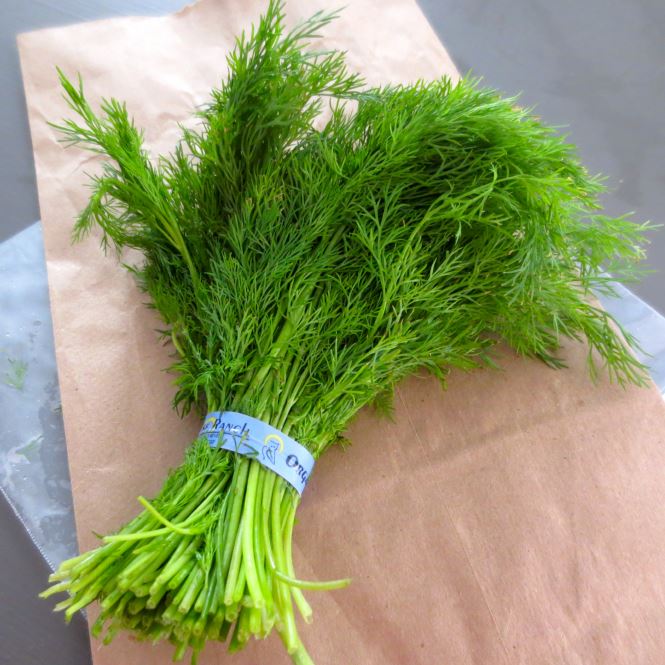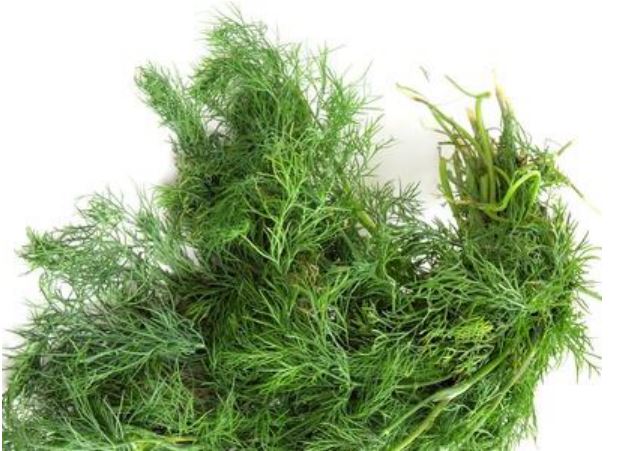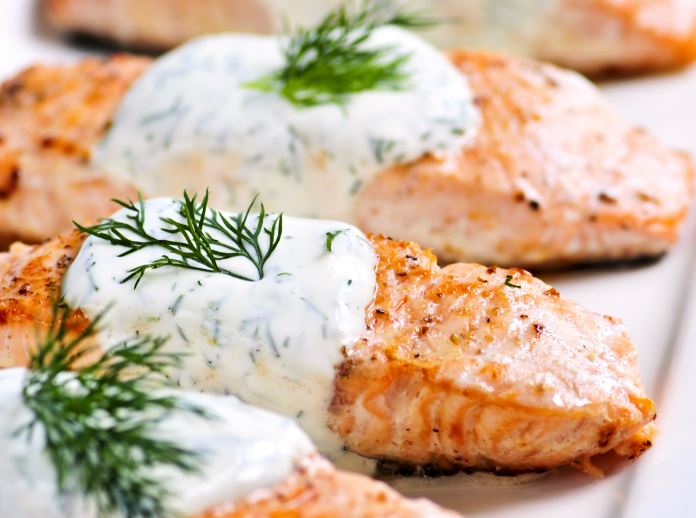One Fresh Herb You Shouldn’t Live Without!

I’m talking fresh DILL. Dill is a unique perennial herb. Unlike many herbs, not just the leaves, but the seeds can be used for seasoning. And dill contains numerous chemical compounds that have anti-oxidant, disease preventing, and health promoting properties galore.
This food is very low in saturated fat and cholesterol. It is also a good source of dietary fiber, niacin, phosphorus, zinc and copper, and a very good source of Vitamin A, Vitamin C, riboflavin, Vitamin B6, folate, calcium, iron, magnesium, potassium and manganese. And dill is very low in calories.
But there’s more—the science to dill is fascinating: Dill's unique health benefits come from two types of healing components: monoterpenes, including carvone, limonene, and anethofuran; and flavonoids, including kaempferol and vicenin.
The monoterpene components of dill have been shown to activate the enzyme glutathione-S-transferase, which helps attach the anti-oxidant molecule glutathione to oxidized molecules that would otherwise do damage in the body. The activity of dill's volatile oils qualify it as a "chemoprotective" food (much like parsley) that can help neutralize particular types of carcinogens, such as the benzopyrenes that are part of cigarette smoke, charcoal grill smoke, and the smoke produced by trash incinerators. Simply put, it provides excellent protection against free radicals and carcinogens.
But there’s still more: Dill’s volatile oil prevents bacterial overgrowth. It shares this feature with garlic, which has also been shown to have "bacteriostatic" or bacteria-regulating effects.
And are you ready for this? In addition to its chemoprotective and bacteriostatic properties, dill is a very good source of dietary fiber (no surprises there—most plant foods are good sources of fiber), and a great source of calcium. You mean we don’t have to rely on dairy for calcium? Nope. We can start cooking with fresh dill!

Whenever possible, choose fresh dill over the dried form since it is superior in its delicate fragrant flavor. The leaves of fresh dill should look feathery and green in color. Dill leaves that are a little wilted are still acceptable since they usually droop very quickly after being picked.
Fresh dill should always be stored in the refrigerator either wrapped in a damp paper towel or with its stems placed in a container of water. Since it is very fragile, even if stored properly, dill will only keep fresh for about two days. Dill can be frozen, either whole or chopped, in airtight containers. Alternatively, you can freeze the dill leaves in ice cube trays covered with water or stock that can be added when preparing soups or stews.
Dried dill seeds should be stored in a tightly sealed glass container in a cool, dry and dark place where they will keep fresh for about six months.

Nutrition factors aside, let’s talk taste. Dill does amazing things to the foods it’s paired with. Here are just a few ways to use it, but really, the sky’s the limit with this herb:
- Combine dill weed with plain yogurt and chopped cucumber for a delicious cooling dip.
- Use dill when cooking fish, especially salmon and trout, as the flavors complement one another very well.
- Combine dill and boiled potatoes—especially new baby reds!
- Add fresh dill sprigs to all vegetables when steaming.
- Use dill weed as a garnish for sandwiches.
- Since dill seeds were traditionally used to soothe the stomach after meals, place some seeds in a small dish and place it on the dinner table for all to enjoy.
- Add dill to your favorite egg salad recipe.
- Mix together chopped potatoes, green beans, and plain yogurt, then season with both dill seeds and chopped dill.
- Add it to bean soups. (It takes all soups and stews made with ham bone to a whole new level.)
- www.frugalnutrition.com
- www.healthyeating.sfgate.com
- www.allcookingsites.com
 Alice Osborne
Alice Osborne
Weekly Newsletter Contributor since 2006
Email the author! alice@dvo.com
